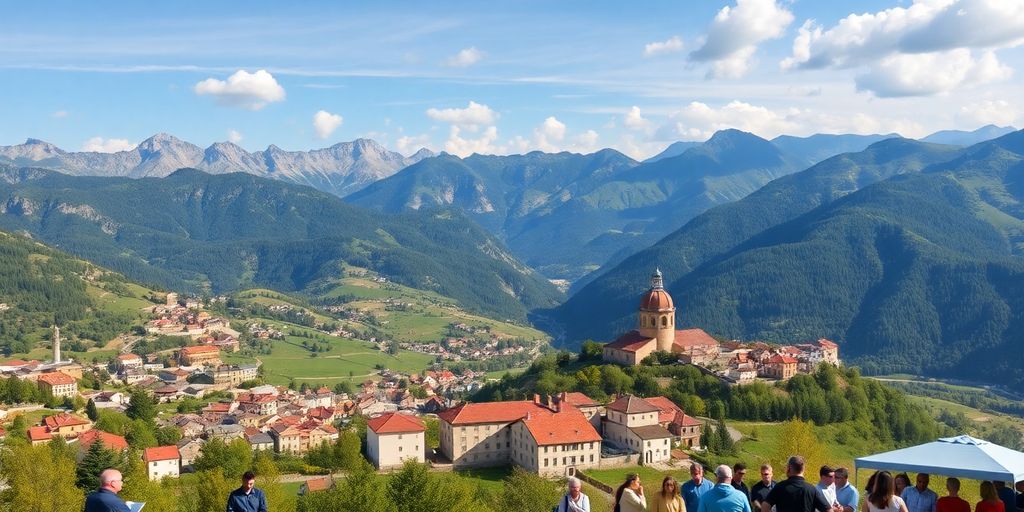The recent EU-Western Balkans Summit in Brussels marked a significant moment in European diplomacy, particularly with the appointment of Kaja Kallas as the new head of EU foreign policy. This summit brought together key leaders, including Ukrainian President Volodymyr Zelenskyy and French President Emmanuel Macron, to discuss pressing issues in the region and the ongoing conflict in Ukraine.
Key Takeaways
- Kaja Kallas’s appointment signals a potential shift in EU diplomacy towards a more proactive stance in the Western Balkans.
- The summit highlighted the ongoing tensions between Serbia and Kosovo, with calls for renewed dialogue and implementation of previous agreements.
- Zelenskyy and Macron’s discussions focused on strengthening Ukraine’s position amid the ongoing war and coordinating European support.
Kaja Kallas: A New Era for EU Diplomacy
Kaja Kallas, the former Prime Minister of Estonia, has taken the helm of EU foreign policy at a critical time for the Western Balkans. Her reputation for advocating the rights of smaller states and her firm stance against Russian aggression suggest a more assertive EU approach in the region.
The Western Balkans have long been a focal point of EU foreign policy, yet the relationship between Serbia and Kosovo remains fraught with tension. The EU has acted as a facilitator in the Belgrade-Pristina dialogue, but progress has been slow, with Serbia often resisting compliance with agreements.
Recent violent incidents in northern Kosovo have underscored the need for a more robust EU response. Critics argue that the EU’s leniency towards Serbia has emboldened provocative actions, undermining the credibility of the dialogue process. Kallas faces the challenge of ensuring that existing agreements are implemented while also taking a firmer stance against destabilizing actions.
The EU-Western Balkans Summit: Key Discussions
The summit served as a platform for discussing not only the Western Balkans but also the ongoing conflict in Ukraine. Zelenskyy and Macron’s meeting was particularly significant, as they aimed to coordinate a unified European response to the war.
- Military Support for Ukraine: Macron emphasized the importance of strengthening Ukraine’s military capabilities and discussed the potential deployment of peacekeeping troops in the event of a ceasefire.
- Bilateral Meetings: The summit included several bilateral meetings between Zelenskyy and European leaders, focusing on further support for Ukraine.
Challenges Ahead
While the summit provided a stage for dialogue, the path forward remains complex. The EU must navigate the delicate balance of addressing the needs of both Serbia and Kosovo while also responding to the broader geopolitical implications of the conflict in Ukraine.
Kallas’s proactive approach will be crucial in revitalizing the EU’s role as a mediator in the Western Balkans. Her ability to secure consensus among EU member states will determine the effectiveness of future diplomatic efforts.
Conclusion
The EU-Western Balkans Summit represents a pivotal moment for European diplomacy, with Kaja Kallas at the forefront of efforts to stabilize the region. As tensions persist, the EU’s commitment to a more balanced and assertive approach will be essential in fostering lasting peace and cooperation in the Western Balkans.






